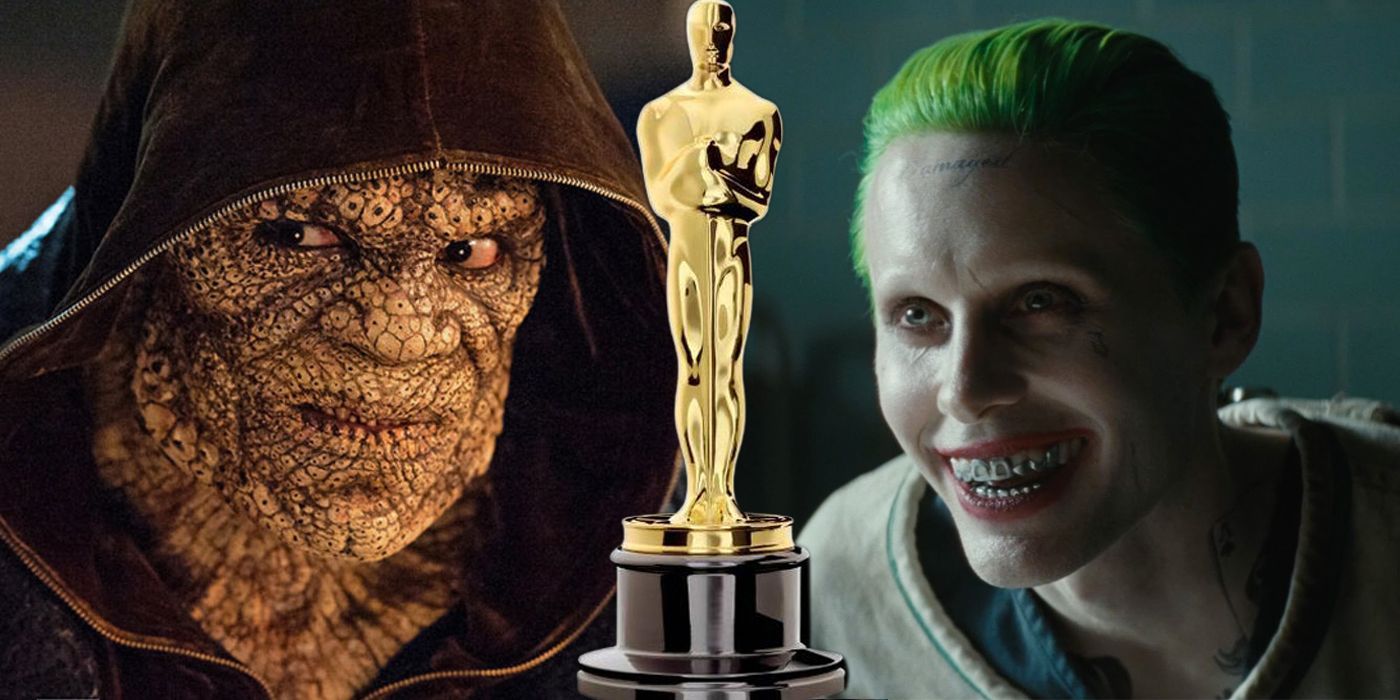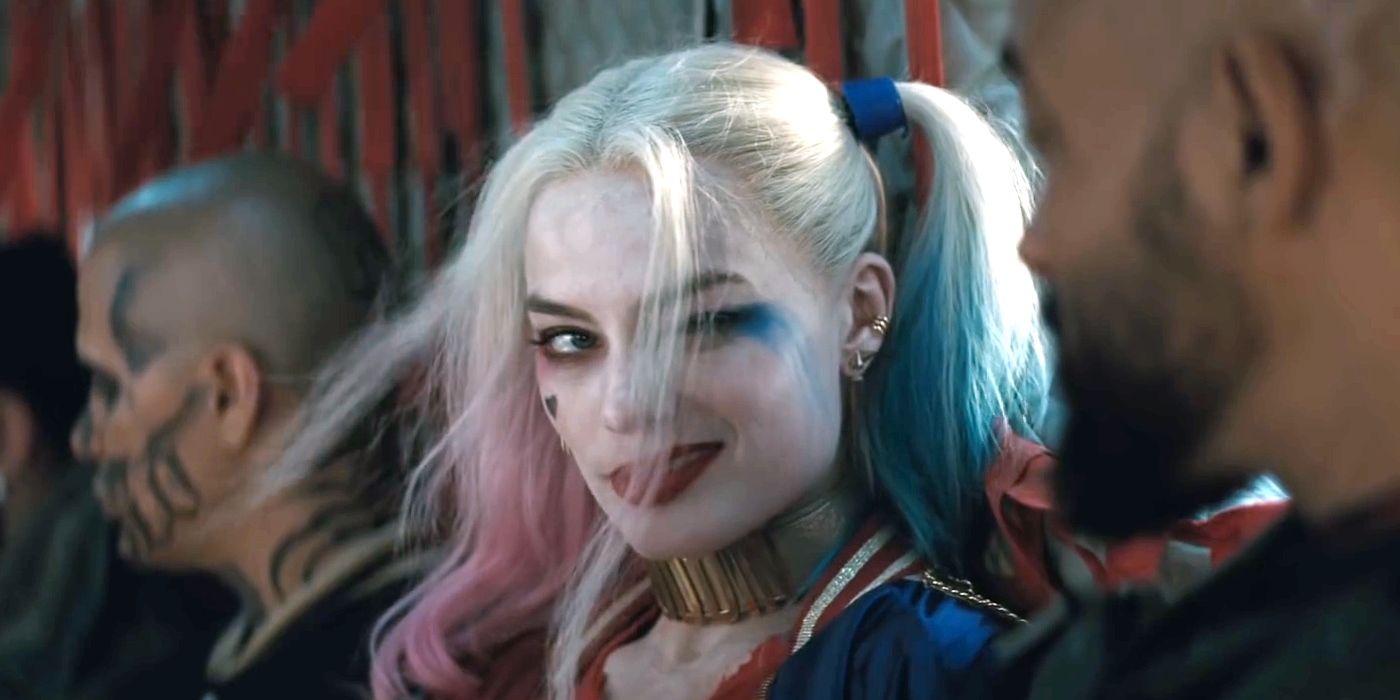Superhero movies rarely get noticed by the Academy Awards. That's just a rule of the Oscars. The same is true of fantasy and sci-fi, but every now and then there's a breakout hit like The Lord of the Rings or Gravity to, in the voter's eyes at least, balance the scales. With comic book heroes it's different; few films are even nominated, and normally it's in the Best Visual Effects category (occasionally there's Best Cinematography nod, but that's not happened in over a decade now). The only big exception is The Dark Knight, which saw Heath Ledger posthumously win Best Supporting Actor. Otherwise it's slim pickings; to date, the Marvel Cinematic Universe hasn't won a single golden statue.
This year, it was thought Deadpool might be able to capitalize on some awards season hype and bag a Best Picture nod, but when the nominations were announced the genre was instead represented by Doctor Strange for Best Visual Effects and, in a surprising turn, Suicide Squad for Best Makeup and Hairstyling. What's even more surprising is that the latter has the better chance of actually garnering a win; Strange is going up against big hitters Rogue One, The Jungle Book and unexpected-but-deserving entrant Kubo and the Two Strings, whereas Squad is only playing against the little-seen A Man Called Ove and Star Trek Beyond.
Suicide Squad was one of summer 2016's biggest box office hits but was savaged by the critics. For every person ready to praise the film for its rough-yet-playful style and vibrant characters, there are many more ready to scorn it for downright bad filmmaking. Despite that, it's now forever going to be known as "the Oscar-nominated Suicide Squad."
But while that marketing title will rub many up the wrong way, it really doesn't show the full picture. Suicide Squad certainly shouldn't have been considered for a directing, acting, screenwriting or (god forbid) editing statuette, but when it comes to the more specific technical categories a different eye is needed to really analyze what's in contention.
The History of Bad Movies Getting Oscar Nominations
Pretty much every year, at least one "bad" movie gets nominated for an Oscar. Last year, the painfully drab Fifty Shades of Grey was nominated for Best Original Song. The year before, Maleficent got a nod for Costume Design. The year before that, Jackass Presents: Bad Grandpa and The Lone Ranger were duking it out for Makeup and Hairstyling - the same award Suicide Squad is currently in contention for. A year earlier two Snow White reimaginings - Mirror Mirror and Snow White and the Huntsman - were both in the running for Costume. Going further back makes for even more eyebrow-raising reading: Norbit was nominated for Makeup in 2008; 102 Dalmatians Best Costume Design in 2001; and Beethoven's 2nd for Best Song ("The Day I Fall In Love") in 1994. You get the picture.
The thing is, while every single one of those movies is of questionable overall quality, they were at the Oscars for very specific reasons that are understandable. It's about focusing on the individual craft in spite of the whole. Filmmaking is a massive collaborative process; you can get movies undeserving of praise in fundamental areas that still excel and are totally worthy of inclusion in other categories.
Let's first look at how exactly the Academy votes on its 24 categories - it's not just a case of every member filling out a long ballot sheet. The basic voting rules are that all of the members vote for Best Picture, but for the specific categories only those with an Oscar win or who otherwise practice in that area can vote. Actors vote for actors, screenwriters for screenwriters and makeup artists and hairstylists for makeup artists and hairstylists. The logic is sound: an actor will be best equipped to measure another actor's ability, but ask them to assess how well a particular sequence is edited and they'll wish they were at the Razzies instead. This is in part why the Guilds are such a good predictor for their respective awards - there's an overlap in membership, so certain performances, directors and screenplays are going to be favored.
What this means is that the smaller categories are only decided on by those with an intricate knowledge of the field, which ensures they're well-informed and can lead to nominees that look like anomalies among the rest of the choices. Core aspects such as writing and editing have a demonstrable impact on the film, and visual effects can alter the viewing experience, but the likes of makeup and hairstyling, costume design, sound and, to a degree, production design are often overlooked when taken as part of the whole.
It's easy for an audience member to look at a film and say the costuming is good, but hard to really compare two film's work without some deeper knowledge of the whole process (and rarely does this conversation overlap with a film's overall quality). Take the more technical sound categories: even veteran Oscar commentators rarely get the difference between Sound Mixing and Sound Editing, but those voting have to almost as a prerequisite (that the two categories often match up is more a product of a certain film's good sound engineers than it is a lack of distinction).
Essentially, the traditionally "minor" categories are for more background elements of the filmmaking and thus are not only easier to miss with an untrained eye but often vary in quality to the actual film at hand.
This distinction is best shown with the Best Original Song category. This year it's dominated by widely-enjoyed films, but across the history of cinema there have been some clunkers: "Promise Me You'll Remember" for The Godfather Part III; "Learn to Be Lonely" from The Phantom of the Opera; "There You'll Be" for Pearl Harbor. However, because everyone has a fair understanding of music outside of cinema it's quite easy to detach the movie from the specific category with song. You can measure the qualities of, say, "Father and Daughter" from The Wild Thornberrys Movie regardless of your thoughts of the Nicktoon adaptation. This is also how movies that are otherwise ignored by the Oscars can get nominations (see: South Park: Bigger, Longer & Uncut with "Blame Canada" and Con Air with "How Do I Live").
The same is true of the other technical categories, it's just that in these fewer people know the nuances. Indeed, what's remarkable about that list of "bad" films from earlier is that you can almost always see why particular movies got attention (except for 102 Dalmatians' costuming - that has to have been a joke, right?)
Suicide Squad's Makeup and Hairstyling
Suicide Squad has been completely absent from pretty much all major award discussion - its accolades have been almost exclusively focused on the People's Choice Awards and its ilk, the only exception being a Best Actress in an Actress Movie win for Margot Robbie at the Critics Choice Award (a ceremony that still skews wide). Hardly surprising given the debate around its quality. Hype has also been low on the technical side (where blockbusters sometimes can break through) due to the criticism of its construction; editing in particular has been a major bugbear, but its overall world design and realization has been widely mocked.
The one place it does offer something that feels to some degree complete is the practical side of the characters: the makeup and hairstyling. This was what the film marketed itself on and did succeed in getting even DCEU dissenters on board. In terms of showstoppers, there's Killer Croc - Adewale Akinnuoye-Agbaje was covered in disgustingly realistic scales accentuated by de-humanizing contacts - and the eye-catching likes of Harley Quinn, El Diablo and Joker certainly have an impact. Ignoring the adaptive or creative issues behind some of these characters (especially with Mr. J) their designs are intricately realized. But one of the film's greatest visual achievements is the breadth of its character design. There's a variety to the styles of design, with the more noticeable ones listed juxtaposed with the likes of worn soldier Rick Flag and bedraggled Captain Boomerang.
With all that in mind and stripping away the context of the movie, that nomination looks a bit different. Is Suicide Squad the best example of makeup and/or hairstyling in 2016 cinema? That's for the Academy voters in the category to decide on February 26th. Is it being nominated a travesty? In this case, not one bit.


